IDC should stop swelling Steve Ballmer's head for things he hasn't done
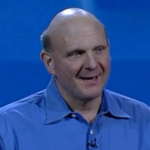
Is Microsoft's contract with analyst firm IDC up for renewal? Hey, the software giant's fiscal year ends June 30, so it could be. What else, other than group insanity, can explain IDC predicting, again, that Windows Phone will be No. 2 in smartphone operating systems come 2015? It's -- get this -- the second time IDC made such a prediction in less than two months. I guess the first time wasn't enough to get the contract signed.
Mighty Suspicious Timing
Ballmer: 500 new 'features' in Windows Phone 7.5 "Mango"

Microsoft CEO Steve Ballmer told attendees of the Japanese Microsoft Developers Forum Monday that the next version of Windows Phone -- codenamed "Mango" -- will contain approximately 500 new features. Ballmer was light on specifics, although rumors may provide some insight.
Mango is expected to include support for multitasking, as well as better integration with Microsoft's Office productivity suite. Internet Explorer 9 will also ship with the new OS, and e-mail will be enhanced with better search and a new thread view. People Hub is also expected to pick up Twitter support.
Steve Ballmer has restored my confidence in his leadership
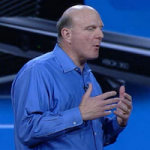
Surprisingly, it only took 10 months. I just figured we were done.
As a long-time supporter of Microsoft's CEO, my June 2010 commentary "I have lost confidence in Steve Ballmer's leadership" came as a surprise. At the time, Windows Mobile was a train wreck; iPad launched to huge success, leaving Microsoft clueless; and Apple's market capitalization exceeded Microsoft's.
If Windows Phone is No. 2 by 2015, I'll kiss Steve Ballmer's feet
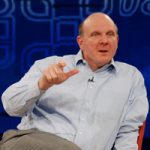
Now here's something you don't see everyday, an analyst firm predicting that Microsoft's mobile operating system will trump Apple iOS and Research in Motion's BlackBerry. Don't believe it. I surely don't, and with good reasons.
The skinny: Today IDC predicted that by 2015, Windows Phone 7 and Mobile would reach 20.9 percent global market share, as measured by shipments, on smartphones -- up from 5.5 percent this year. By comparison, iOS share is predicted to be nearly flat over four years, with smartphone OS share of 15.3 percent in 2015. IDC predicts Android will grow to 45.4 percent from 39.5 percent.
How could Steve Ballmer screw up Microsoft's HP partnership?

Somewhere, in an alternate universe, Microsoft did the right thing: Bought Palm instead of cut a deal with Nokia. But in this reality, Microsoft screwed up, not just by letting Palm go but clearing way for HP to make the acquisition. Now HP, Microsoft's strongest OEM partner, is turncoat, planning to put WebOS on every HP PC by 2012. It's simply unthinkable.
Just 11 months ago, HP revealed plans to buy Palm for $1.2 billion -- a pittance if just to get WebOS. Four months earlier I gave "10 reasons why Microsoft should buy Palm now." But Microsoft CEO Steve Ballmer and his top executives let Palm get away. (Hey, I gave good advice -- for free!) Ballmer was willing to spend $44 billion for Yahoo just a few years ago, and Nokia will reportedly receive $1 billion from Microsoft as part of the Windows Phone OS distribution deal. Palm was a garage sale, by comparison.
10 Things I would like Steve Ballmer to do in 2011

While I would not consider myself a Microsoft fanboy, I definitely do find myself interested in the company's products to the point that I'd love to see Microsoft recover from its past mistakes and establish its brand firmly in the minds of consumers again. No matter how you view Microsoft, it is a great company with some pretty cool products. They are nowhere near the popularity of Apple or Google, especially when it comes to the tech press, but I cannot help but think that Microsoft stands in a unique position to wow us in 2011.
Will Microsoft do it? I don't know for sure. But I hope so. Microsoft employs some of the smartest and most talented programmers and scientists working anywhere. Then there's Steve Ballmer, the charismatic CEO whom many people think is fighting to save his job. As a Microsoft user and developer, I want to see the company succeed in 2011. Surely Ballmer wants to receive feedback from people like me, so I have compiled a list of 10 things I'd like to see him do this year. I believe that if Ballmer is successful at bringing these things (and others) to market this year or next, he will not only save his job but will make Microsoft a stronger consumer brand, something the company desperately needs in order to be competitive in the future.
Steve Ballmer's change of heart is touching, but it's five years too late

S-o-o-o-o, if the unnamed sources cited by Bloomberg are to be believed, Microsoft's CEO wants to shakeup management by shaking out the sales and marketing guys and bringing in more technically-oriented leadership. Oh yeah? Then why has Microsoft lost so many technically-savvy managers over the past 12 months or so -- including Robbie Bach, Bob Muglia and Ray Ozzie, all of which got Steve Ballmer's boot out the door? Then there is Ballmer, who started this marketing management madness in a September 2005 reorganization. That's right, Ballmer is responsible for placing so many sales and marketing execs in key management positions and allowing them to appoint others.
According to the Bloomberg story, by reporter Dina Bass, Ballmer "plans to extend a management shake-up aimed at adding senior product executives with an engineering background." Bass is a veteran reporter who has covered Microsoft for many years, and she typically has impeccable sourcing. Her report is believable. The questions: Why? Why now?
Steve Ballmer finally shows who's in charge of Microsoft

In his 11th year as chief executive and third outside the shadow of Chairman Bill Gates, Steve Ballmer is asserting surprising control over Microsoft. There were signs in 2010, but events over just the last week, particularly the public execution of Bob Muglia, show a different side of Microsoft's CEO. Competitors, you've been warned.
Over the last week, Ballmer did two things that spotlight this change in his leadership style, something already seen in other executive ousters (including Robbie Bach and Ray Ozzie in 2010). The first: Ballmer rightly resisted making tablets a major part of his Consumer Electronics Show keynote last week. The second: Muglia's demotion, and in real substance firing, as Server and Tools Business president.
Hey, Steve Ballmer, where's the beef?
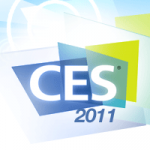
Critics, and even customers, accuse Microsoft of being empty, of having exhausted its innovation -- and for many of them that means imitation. Microsoft is often called he great imitator. At first glance, last night's opening Consumer Electronics Show keynote given by Microsoft CEO Steve Ballmer fits the bill. The keynote felt empty, and short. Microsoft didn't even show off something substantially new about tablets, which is one of the event's hottest product categories this year. The rumors about a tablet operating system were wrong.
What is Las Vegas? It's a place to be entertained (and, yes, gambling is one of the recreations). I think of Vegas as where entertainers who have passed their peak of popularity go. It is the city of celebrity has-beens. Perhaps then, Ballmer was where he belonged.
Ballmer CES keynote: Microsoft sells 8 million Kinect controllers

It wouldn't be the Consumer Electronics Show without Microsoft kick-off keynote. For about a decade, cofounder Bill Gates assumed the role. More recently the burden belongs to CEO Steve Ballmer.
Considering all the accolades given Apple chief executive Steve Jobs during 2010, I wonder if he would give the keynote if asked. After all, Job's is tech's CEO-darling of the hour, he runs the tech company with largest valuation and Apple's most successful products -- at least released during the new millennium -- are consumer electronics: iPad, iPhone, iPod touch and newer MacBook models. Apple's products have lots more to do with consumers and electronics than do Microsoft's. Ballmer's company mostly sells to enterprises and earns nearly all its profits from software. Apple sells hardware, and of course bundled software and services, to consumers.
Why did Steve Ballmer sell 12 percent of his stake in Microsoft?
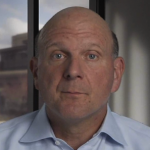
Perhaps he knows something you don't.
I've been asking myself the question all weekend, and now I'd like to pose it to you. I ask Betanews readers to respond to the poll below and to answer in comments; please do both. You can choose up to two answers. I wanted to leave an option for your own reasons, but I worry that trolls would be obnoxious. Sorry. If readers respond favorably, I'll do more polls like this. The poll expires on October 16, 2010 at Midnight PT. Embedded poll below requires JavaScript. If you have disabled JavaScript or otherwise can't see the poll, please go to this link.
Would you be Steve Ballmer's Facebook Friend?

That's the question I started asking last night. But there is another. Would Microsoft's CEO accept me as friend? Or you?
Yesterday, Nick Eaton of Seattle PI's "The Microsoft Blog" pointed to what he believed to be "Steve Ballmer's real Facebook page." Welcome to Facebook, Steve, assuming that's really you. I've been on the service since 2006. Could I offer you some tips?
Steve Ballmer has one more chance to save his job
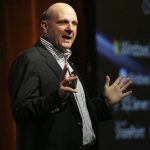
July 29, 2010 may be remembered as the most important day in Steve Ballmer's career at Microsoft. Tomorrow, the company hosts its annual Financial Analyst Meeting, or FAM. How much Ballmer and his core leadership team spend concretely talking about the future, rather than the past, will foreshadow how long the chief executive can remain the big boss. Nearly as important: Which executives will make presentations.
Microsoft closed fiscal 2010 on June 30 and last week announced record fourth quarter and yearly results. (I skipped covering Microsoft earnings for the first time in nearly a decade, to attend San Diego Comic-Con. I will likely post a belated "by the numbers" analysis after FAM.) Microsoft uses the event to offer financial analysts a long look back at the old fiscal year and to give a sneak peak at the FY ahead.
Ballmer: Microsoft will push forward with new tablets, phones

All but admitting his company has fallen behind competitors, Microsoft CEO Steve Ballmer told attendees of its Worldwide Partner Conference Monday that it plans to work hard to bring new tablets and smartphones to the market.
Ballmer's first task in his keynote address was to soften the concerns of partners, who have become more skeptical of MIcrosoft's ability to stay relevant. He said the company is still on track with Windows Phone 7, and that tablet computers from several partners are due within months.
Five reasons why Microsoft can't compete (and Steve Ballmer isn't one of them)

Well, hell, it must be "five reasons" day here at Betanews, and I certainly didn't plan it that way. Earlier I posted "Five reasons why Apple will deliver iPhone 4 preorders early." Now it's Microsoft's "five reasons." I had planned to post this one yesterday but held back because of Apple's iOS 4 release, which gravity well pulled away tech readers' attention (surely the many blog posts or news stories made the update hard to ignore).
I completed the main contents of this post yesterday morning (Hey, I don't have an iPhone on which to test iOS 4) as a follow-up to Friday's "I have lost confidence in Steve Ballmer's leadership." I see that some pundits are taking swings at Microsoft. Yesterday, Henry Blodget asked: "Can Microsoft collapse?" My response: Why ask? This is a $60-billion revenue a year company. RealNetwork's founder Rob Glaser answers thequestion: "Why has Microsoft seemingly stopped innovating?" Considering Real's lack of innovation for most of the Noughties, Glaser is perhaps a good person to answer that question.
Recent Headlines
Most Commented Stories
BetaNews, your source for breaking tech news, reviews, and in-depth reporting since 1998.
Regional iGaming Content
© 1998-2025 BetaNews, Inc. All Rights Reserved. About Us - Privacy Policy - Cookie Policy - Sitemap.